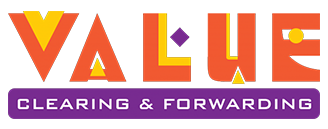SEA TRANSPORT OPTIONS
LCL (Less than Container Load)
For LCL consignments (also called general cargo), the volume and/or the weight of the individual consignments are too low to fill a complete container. In practice, serveral LCL consignments (including consignments from different consignors but with the same destination port) are loaded together in a single container at the port of shipment (consolidated container).
FCL (Full Container Load)
Full containers are loaded when, for example :
- The volume and the weight of the consignment are large enough to make transport with a dedicated container economical.
- The nature of the goods and the required load securing measures require the use of a dedicated container.
- Loading together with other goods is prohibited.
Breakbulk
The term “breakbulk” encompasses the transport of solid materials that cannot be loaded in containers due to their dimensions their weight, or other properties, or for which container transport would be uneconomical. Special attention should be given to the choice of a suitable ship, as well as the options for handling the port of shipment and the destination port.
RO/RO Traffic (Roll on/Roll off)
Many shipping routes are also covered by RO/RO ships. This allows rolling stock (e.g. HGVs, busses, cars, construction vehicles, etc.) to be driven directly onto the ship. They are stowed and secured on the ship, similar to ferry operations.
Bulk Loads
Dry bulk loads (e.g. cereals) are primarily transported to and from the port in railcars, since these loads usually have large volumes. In the port they are transferred directly from the railcar to the ship or the other way round.
